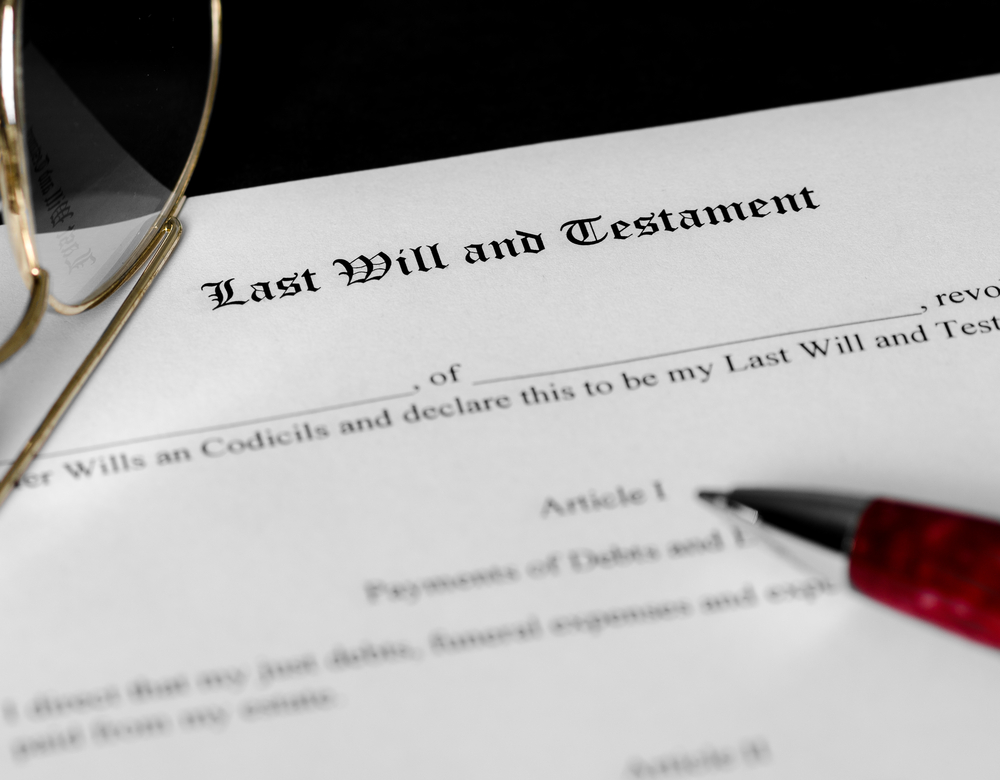As an estate planning lawyer, I see two kinds of people in this world: those who take control of their legacy during their lives, and those who hope that everything will somehow just fall in place by pure luck.
I can tell you with millimetre-perfect accuracy which of the two leaves behind a well-considered and effective wealth transfer matched with harmonious families, and those who leave raging infernos that take years and fortunes to put out.
Some estate battles are so bitter that they can never be put to rest, and run like poison in the veins of successive generations carrying the same blood feuds for decades.
Covid-19 and its sudden grim reality has laid bare just how many of us are exposed as wishful thinkers. About half of adult Australians are unprepared and do not have a valid Will or estate planning documents and so leave their wealth and legacy to the winds of fate.
What does unprepared look like? Well, there are two types of unpreparedness – during life and after death.
Essential during life is to have a plan for loss of mental capacity, which is not just the creeping memory loss of age we’ll all endure at some point, but if you lose consciousness or suffer injury or illness. These are guardianship and administration documents that allow decisions to be made for you if you can’t.
An Enduring Power of Attorney allows someone appointed by you to stand in your shoes, legally speaking, and make decisions using your assets. In the wrong hands this can become a license to fraud, but in the right hands is an indispensable tool to ensure you are cared for properly.
An Enduring Power of Guardianship is similar, but instead of financial decisions, it allows you to appoint someone to make lifestyle and health decisions for you. Again, put the right person in this role and you can ensure your wellbeing and comfort in times when you cannot look after yourself.
These documents are even more necessary with blended families – stepparents and stepchildren can fight like junkyard dogs over control of a vulnerable person’s finances because it can be a meal ticket for the unscrupulous or result in evictions from the family home for example.
On death, a valid Will is paramount. Without one, you are deemed “Intestate” and your assets are divided according to a formula in a piece of legislation that varies from State to State. In WA the legislation is in the Administration Act 1903 and it has a long cascade of potential relatives who may benefit, ending up ultimately in the hands of the Government if you leave no-one. A very common result is the spouse getting the first $50,000 (regardless of how much you are worth) then the rest is split one third to the spouse and the other two thirds to the children. Even if one child is poor and one is a millionaire, or you’ve not seen one in 20 years and one is your adored live-in carer, the law of intestacy does not discriminate.
I hear very commonly, sometimes from very financially sophisticated people, that they don’t need a Will “because everything goes automatically to my spouse: it’s the law,” I am told. Which is funny, because as an expert estate planning lawyer I’ve never heard of that law in Australia (France has the Napoleonic Code that can work like this but unless you are talking about your flat in Paris, forget it). I understand where this myth originates – it really started in the 1950’s, when husband and wife generally had a very simple set up – a jointly owned home, one joint bank account and their personal effects. And all those went automatically to the spouse by what is called the law of survivorship.
But it is really important to note that your Will does not cover your superannuation, your life insurance, any family trusts you might control, jointly owned assets or joint mortgages. All of these things have discrete and specific paths of their own that must be looked at and planned for. Your Will does not cover them unless specific actions are taken to make that happen – in other words, unless you plan for it.
There are no certainties in life, but failing to tackle your estate planning is just an invitation to chaos. Ask yourself if you want to be the one who leaves behind shattered dreams, bitter family and the wealth you’ve worked so hard to accumulate being completely at risk. In the most tragic cases, loved ones can be left broken and destitute.
But I can also promise you there is an upside. Once you do it, once you sign on the dotted lines of your estate planning, a weight you may have been carrying on your shoulders for years will lift and with it comes a deep peace of mind.
The key message is this: you can take action; you can control your legacy and you can improve things. No estate planning is impossible, even if your life is as complex as a Russian novel.
We have seen a marked influx of estate planning work in the last month, for very obvious reasons. We all feel exposed and vulnerable during a crisis like this.
Taking control of one’s estate planning can be a meaningful way to bring order out of chaos, to exert control over one’s life during a period of wild uncertainty and to leave what may be the most valuable gift of all; comfort and certainty.








